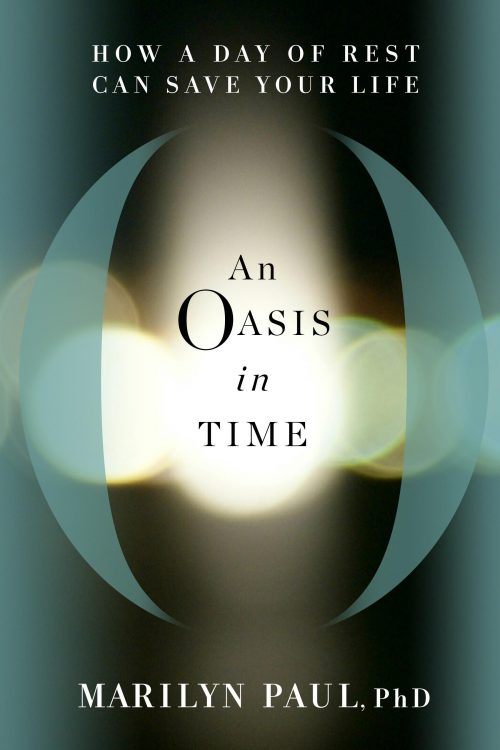Twenty-four hours off the grid? Crazy, you say! Yes, while some people take Shabbat very seriously, others long to embrace it and just don’t know where to begin. (If you’re totally clueless, check out our handy Shabbat guide right here.) The idea of logging off of email, putting away the devices and actually carving out time for reflection runs counter to modern life.
Which is exactly why it’s so necessary and so nourishing. Dr. Marilyn Paul, a Boston native now in California (and the mom of a busy teenager), has written a book called “An Oasis in Time: How a Day of Rest Can Save Your Life.”
“I initially got the idea to share information for friends who didn’t understand what we were doing, why we were putting our phones down and not wanting to talk about work issues at the table,” she explains. “The minute they hear Sabbath or Shabbat, they’re turned off. It’s too much. But I’m not that religious. What I wanted people to know is this is a brilliant treasure from our spiritual tradition, and anyone can learn how to do it.”

Of course, life sometimes got in the way: Her son had sports, for example, but the family would walk to games and “watch them in the spirit of enjoyment, not competition,” she says.
Paul shared five gateways with JewishBoston for incorporating some form of Shabbat into your life.
Plan, protect and prepare
“Guard your time. Don’t let errands creep in. Prepare food, think ahead and don’t arrive at Friday night with nothing to do,” she advises.
Maintain a clear beginning and ending
“We start with a little ceremony or ritual to say we’re in this type of time, and we also end it deliberately,” she says. “We consciously receive the blessing and talk about its highlights.”
Disconnect to connect
“Put down phones and all digital devices!” she says. Sometimes this isn’t totally practical: For instance, she and her husband go for drives and need a GPS, though they also use maps. Sometimes they need to get ahold of their son, but they use a landline, not a smartphone. “Smartphones are addictive!” she says. “The next thing you know, you’re checking Twitter.”
Slow down to savor
“Walk a little slower. Eat a little slower. Talk a little slower. Research shows that your brain actually lets you perceive more when you slow down. It changes your neurology,” she says. Check in with yourself: Are you feeling peaceful? Anxious? Angry? Let yourself sit with those feelings instead of burying them in the next task.
Let go of achieving to reflect, rest and play
And, no, resting doesn’t mean scrolling Facebook. Reflect on what you truly enjoy, Paul advises. “What is rest for you? What stops your non-stop movement? Is it being a maker? Is it cooking? Basketball? Do something that isn’t about achieving.” Finally, she says, it’s OK to take time out as parents. Get a babysitter, if you can, and let your child watch TV (really!) while you take a nap. “That kind of downtime can be a real part of our renewal,” she says. Or engage them with special toys from a box that they can only play with on Shabbat.

Having this kind of pause to look forward to during the week makes day-to-day drudgery more bearable, Paul says.
“We know we’ll see other people in a relaxed way. We know we will see friends. No work. No phones. We can talk about matters of substance and be together. Without it, life is a blur. This stops us in our tracks once a week and removes the blur, to have a day without school or life pressure,” she says.
And, most of all, realize that Shabbat isn’t one-size-fits-all.
“The key phrase is ‘off the clock and off the hook,’” she says.
This post has been contributed by a third party. The opinions, facts and any media content are presented solely by the author, and JewishBoston assumes no responsibility for them. Want to add your voice to the conversation? Publish your own post here. MORE



